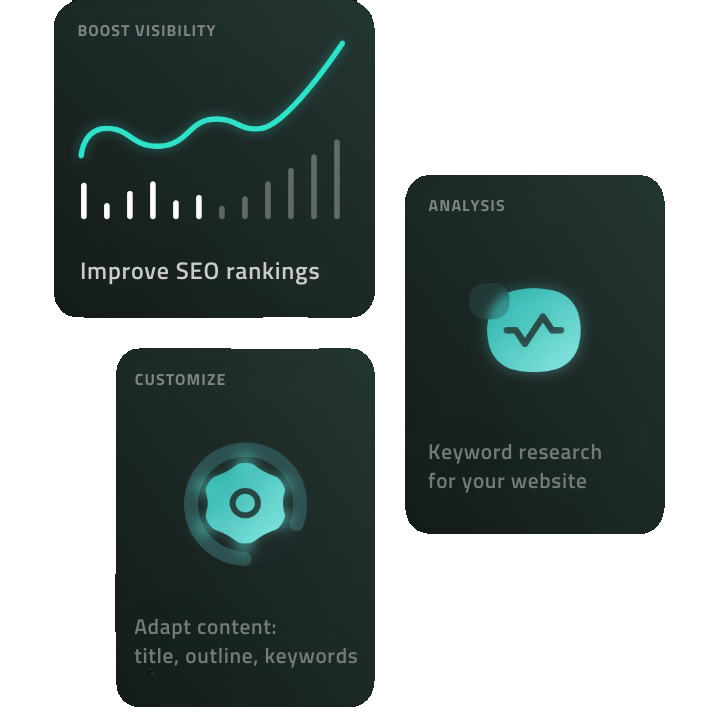Craft exceptional articles – without writing any.
Provide the URL and start generating unique, tailored content for your site, at scale.
No endless edits, no lost hours — just quality articles, ready when you are.

Is this the most effective way
to create your SEO content?
can do more harm than good.
Hand-written content is expensive and takes time
While manual content creation offers quality, it comes with its own set of challenges.

Time-consuming
High costs
Limited scalability
SEO knowledge required
Lack of automation
Most content generators don't deliver on SEO
Many AI text writers (like ChatGPT) offer a quick fix but miss the mark on key aspects.

Generic, robotic output
Not designed for e-commerce
Short-form limitations
Prone to plagiarism
Multi-tool hassle, no API for scaling
How much is it costing
your business?
Start for free: no contracts, no credit card required
Cancel anytime
30 day money-back guarantee
What if you could multiply your organic traffic without the SEO hassle?
Let us analyze your website
for tailored content
AI analysis of the store
Determining tone and language
Shopify app for seamless integration


Customize article settings for
tailored SEO for your site
Pick from suggested titles or use your own
Keyword recommendations
100+ languages
Set up outline, FAQ section, key takeaways
Generate long-form blog posts with a click
2000+ word articles
Generate tailored AI images
Accessible generation history


Publish your masterpiece
in seconds
Fine-tune generated result
One-click Shopify publishing
HTML output available
API for content generation at scale
E-commerce businesses are already scaling content like pros, when will you?
If you're not satisfied, you won't pay a dime.
Start for free: no contracts, no credit card required
Cancel anytime
30 day money-back guarantee
